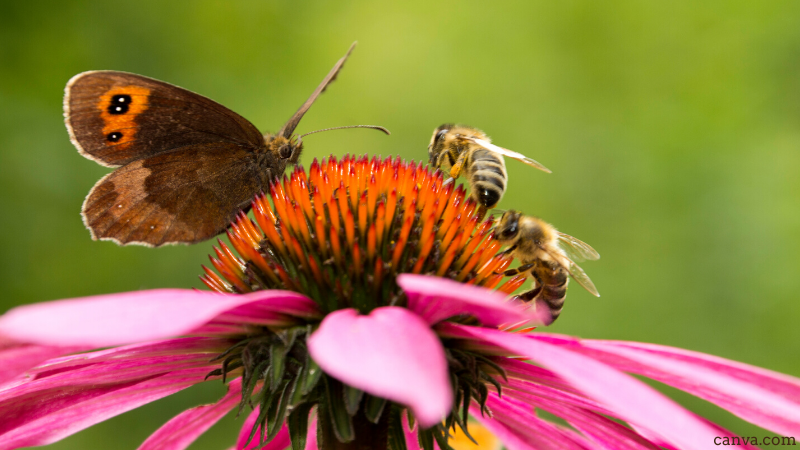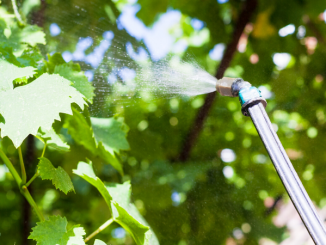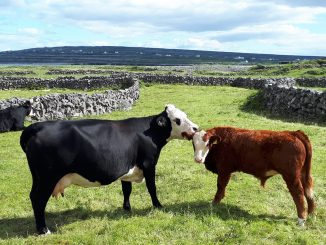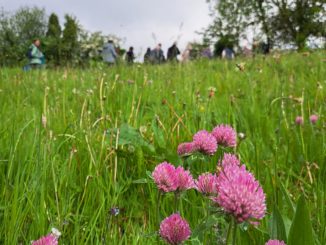
A coalition of 11 EU countries have banded together for a last ditch push to save the EU’s nature restoration law – but this is unlikely to move things along before the EU’s June elections, according to sources close to the matter. Natasha Foote brings us the latest on the law.
The notorious Nature Restoration Law (NRL), proposed in June 2022, aims to reverse the drastic decline of Europe’s nature, with the ambition to restore 20% of the EU’s land and sea areas by 2030, and incrementally working towards full health by 2050. It includes a number of provisions that touch the agricultural sector, including the development of national plans on restoration measures and voluntary rewetting of peatlands.
After an extremely rocky road paved with push backs from the right of the Parliament and farming groups, negotiators finally agreed on a compromise text – albeit in a watered-down form – back in November 2023.
All that was left was for lawmakers to officially sign off the law which, after intense rounds of technical negotiations, is usually a formality – but proved anything but for this law.
After surviving a knife-edge final vote in the Parliament, EU countries originally planned to give the final greenlight back in March. But the vote was called off at the last minute after Hungary unexpectedly withdrew its support and, in doing so, tipped the scales enough to lose the slim majority in favour. The final greenlight was then put on ice, postponed until further notice.
Now, just ahead of June’s EU elections and with one last meeting of EU environment ministers tabled before the end of this political cycle, Ireland has rallied for one last push in a letter urging countries to live up to their “responsibility to be constructive and to work towards joint solutions, in the interest of European citizens”.
The letter – which is signed by Germany, France, Spain, Czech Republic, Luxembourg, Lithuania, Estonia, Denmark, Slovenia and Cyprus – was sent to countries that are either abstaining or voting against the law and published on Tuesday (14 May).
Stressing that Europe is the “fastest warming continent and is facing unprecedented impacts from the intertwined nature and climate crises,” the letter calls on those blocking progress on the law to act “urgently and decisively to conclude the political process”.
“Our failure as EU leaders to act now would fundamentally undermine public faith in our political leadership at home and internationally,” it warns, adding that backtracking on previously agreed compromises “jeopardises our democratic institutions and calls into question the EU policy-making process”.
Ireland is therefore pushing for the topic to be tabled at the last meeting of EU environment ministers on 17 June.
One EU diplomat, who spoke on the condition of anonymity, told ARC that there are concerns that if the Presidency does not “make a concerted effort” to put this back on the agenda, progress could be lost in the next political cycle. “We cannot risk that the Parliament decides to go back on its decision,” the diplomat said, stressing the need to “seal the deal” on this before the end of the mandate.
And Ireland is not the only one pushing work forward on the file, with 215 scientists representing various scientific institutions in Poland sending an open letter to Polish Prime Minister Donald Tusk in support of the law on Monday (13 May).
Will it have any impact?
However, the law still faces staunch opposition from a number of EU countries, including Hungary, Italy, the Netherlands and Sweden. Meanwhile Austria, Belgium, Finland and Poland intend to abstain, which is just enough to block proceedings on the file.
Asked whether the letter is likely to change things, a representative for the Belgians – who currently hold the reins of the rotating EU Presidency – said that while such moves can impact debates, the NRL story remains “quite difficult”. “If we saw room for manoeuvre to make one member state change their mind, we obviously [would] have already used that opportunity or would immediately look into that possibility,” they said.
Likewise, according to another EU diplomat, who spoke on the condition of anonymity, there is currently “no sign that any countries are changing position”.
The diplomat added that there is not a lot of “political will” to reopen conversations from the side of the Belgians due to “deep divisions” in the Belgian camp. Restarting conversations on the file would therefore “cause a lot of internal trouble in Belgium,” the diplomat added.
A separate source told ARC that Belgium is currently blocked from moving forward by the Belgian region of Flanders. According to the source, this is because Flanders has “felt the influence” of neighbouring Netherlands, where far-right parties continue to gain ground.
This means that, despite the fact that while the Brussels Capital region and Wallonia both back the law, Belgium is unable to vote in favour of the law.
Instead, one diplomat said current thinking that conversations are more likely to find success after the EU elections, once the dust settles. “I believe that it might be easier for member states to switch sides to a yes-vote after the elections,” the diplomat told ARC.
However, this is not something that is likely to be immediately picked up after the elections, according another EU diplomat, who pointed out that work is unlikely to move forwards under the Hungarian Presidency, which starts in July.
“Some people say that maybe after the elections, there will be less pressure from farmers unions and more momentum to move forward with the file, but there’s such a small window for the Belgians, and the Hungarian presidency are not likely to pick it up,” the diplomat said, adding that it is “difficult to see who would change position”.
More on the Nature Restoration Law
EU’s Nature Restoration Law at Critical Juncture after Pushback by Member States
Nature Restoration Law Passes Final Hurdle in Parliament, Now Set to Become Law
Nature Restoration Law Emerges from Trilogue – What’s Changed?
Nature Restoration Law News – Environment Committee Edging Towards Deal as EPP walks out
Nature Restoration Law: A Chance for the EU to Make Good on the Green Deal
More from Brussels
What the EU farmers survey tells us – and doesn’t tell us – about CAP burden
Green Light Now, Green Fight Later – CAP Fast Track Risks Legal Wrangle
Confidential Legal Advice on CAP Fast Track Uncovered – what’s in it?
Confidential Legal Advice on CAP Fast Track Uncovered – Critique of a Meek Opinion





